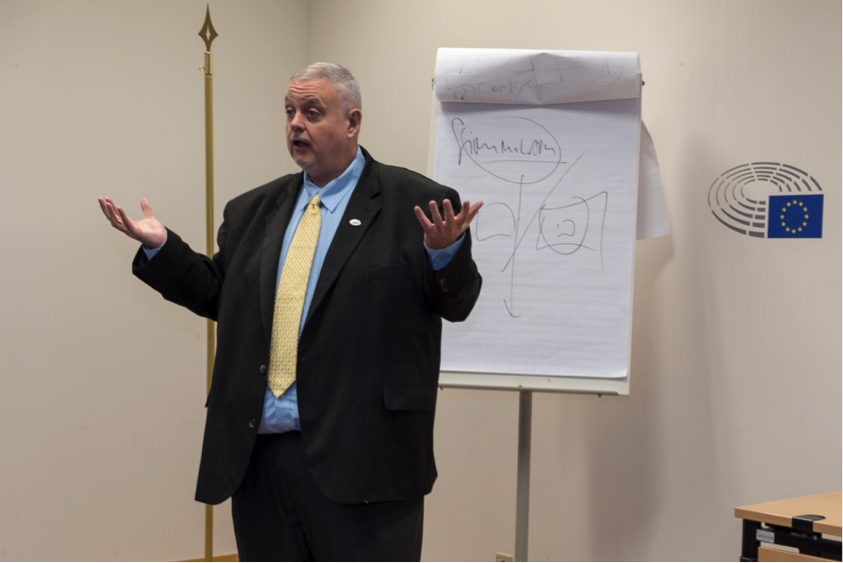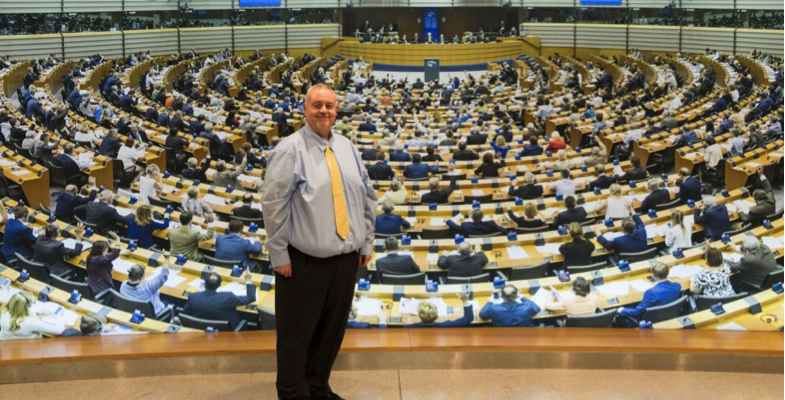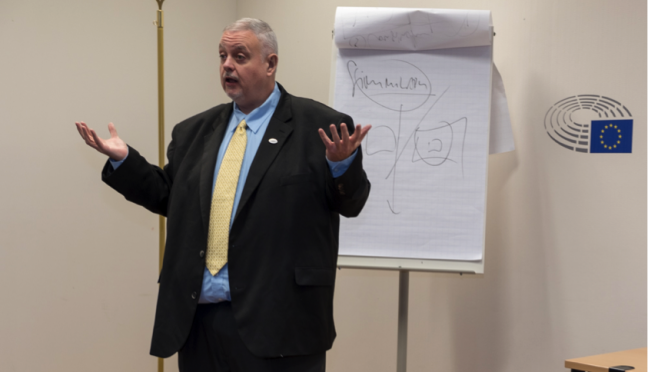A professor of rhetoric, political communication, argumentation, and debate in the School of Communication at Illinois State University, Dr. Joseph Zompetti was invited to hold workshops and training sessions in Brussels, Belgium, for members of the European Parliament, Non-Governmental Organizations (NGOs), and youth leaders across Europe.
Dr. Zompetti received this invitation from the European Parliament through the International Debate Education Association (IDEA). Dr. Zompetti, who is also a former president of IDEA, stated that “they had an event planned at the European parliament; to conduct workshops with NGOs, young people, and the parliament is debating about several measures to help European youth.” According to Dr. Zompetti, he led breakout sessions with members of parliament and NGOs to address some pertinent issues of concern to the European Union (EU).
The professor of rhetoric and international political communication indicated that “many members of the European Parliament are concerned about the challenges facing democracy in the world, but mainly in Europe.” According to Zompetti, the EU was concerned with issues of the financial crisis that primarily hit Spain, Greece, Portugal, and issues of immigration, as well as the effects of Brexit and the rise of ultra-right-wing groups in Hungary and Germany.
Zompetti indicated that “all of these factors are making many people in Europe uneasy” and that called for the need to engage citizens, especially the youth, about these challenges. Dr. Zompetti highlighted that the EU parliament understands that education and activities for young people are important for the long-term prosperity of the nation, the long-term preservation of their cultures, and the preservation of democratic values.
For Dr. Zompetti, “there are problems ranging from socioeconomic issues to racial issues that are also a challenge to European countries and present challenges to younger people.” As such, young people must be involved in civic engagement, political processes, and discussions so that the youth may participate in these discussions to sensitize them towards a more inclusive and just society.
He indicated that the changing demographics of European countries posed racial problems that involve Muslims, Asians, Africans. As someone who teaches about polarizing political rhetoric and contemporary controversies in democratic societies, he noted that “those were the hot topics, but we talked about how to work with different populations…because, many of the tensions that exist in society stem from issues of difference (class, race, gender, etc.) and if groups like NGOs can do more work to help the youth be more welcoming, respectful, and tolerant, then the idea is that as they get older and get into positions of power, they are more in tune with some of these challenges.”
Dr. Zompetti expressed his satisfaction with the results of his trainings at the EU parliament in Brussels. “The conference was very interesting, particularly because it created the platform for European leaders to think about how to preserve democracy, cultural cohesion, cultural integrity, and working with young people,” he said.



